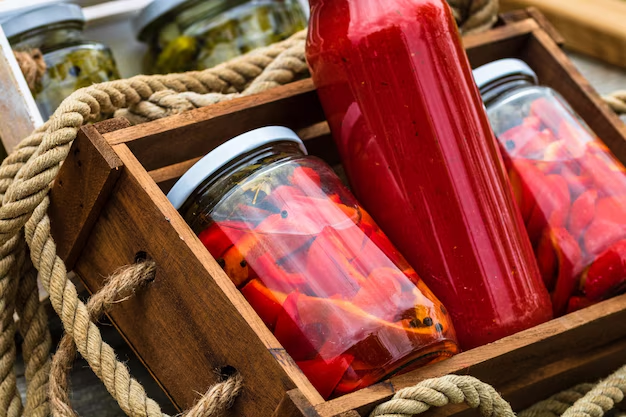Does Ketchup Really Need to Go in the Refrigerator? Let's Uncover the Truth!
When it comes to condiments, few are as ubiquitous and beloved as ketchup. Whether you're slathering it on a juicy burger or using it as a dip for crispy fries, ketchup is a staple in kitchens around the world. Yet, a common debate ensues among food enthusiasts: does ketchup need to be refrigerated? If you find yourself pondering this condiment conundrum, you're not alone. Let’s dive into why some people believe ketchup doesn't belong in the refrigerator and explore the practicalities of ketchup storage.
Understanding Ketchup’s Shelf Stability
The Preservatives Play
Ketchup primarily consists of tomatoes, vinegar, sugar, salt, and a blend of spices that contribute to its robust flavor. Together, these ingredients create a self-preserving product due to their natural preservative qualities.
- Vinegar: The acidity of vinegar helps inhibit the growth of spoilage-causing bacteria.
- Sugar and Salt: Both act as preservatives by drawing moisture out of bacterial cells, effectively slowing down any potential growth.
- Spices: Ingredients like cloves and cinnamon, found in some ketchup recipes, can possess antimicrobial properties.
Given these ingredients, commercially produced ketchup is typically designed to be shelf-stable, especially in an unopened state.
Traditional and Modern Preservation Techniques
Historically, many foods were preserved using methods like pickling or fermentation long before refrigeration became common. Ketchup, having roots in ancient preserved fish sauce, evolved into the tangy tomato-based condiment we enjoy today. More contemporary methods include vacuum-sealing and pasteurization, further extending ketchup's usability without refrigeration.
Do We Really Need to Refrigerate Ketchup?
While the ingredients of ketchup contribute to its longevity, the debate about refrigeration usually sparks post-purchase. Once opened, does the story change? General observations suggest:
Safety Concerns
- Unopened Bottles: Ketchup can remain on shelves safely until opened, thanks to its airtight packaging and preservation methods.
- Opened Bottles: Though it remains safe and usable at room temperature, refrigeration can help maintain optimal flavor and color over time.
Taste and Texture Considerations
Some consumers suggest that refrigeration can slightly alter the taste or texture of ketchup. When kept at room temperature, ketchup often retains its original consistency and taste, which can be appealing when serving hot foods.
Practical Recommendations for Storing Ketchup
Given that many households prefer the convenience of refrigeration, let's break down practical tips for storing ketchup effectively:
At Room Temperature
- Keep It Cool, But Not Cold: Store in a cool, dark place away from direct sunlight, which can degrade quality over time.
- Minimal Temperature Fluctuations: Avoid placing ketchup near heat sources like stoves or in areas subject to frequent temperature changes.
In the Refrigerator
- Behind Closed Doors: Store ketchup on refrigerator shelves rather than in the door to keep it at a more consistent temperature.
- Seal Tight: Ensure the cap is always tightly closed to prevent any contamination or oxidization.
Expanding Your Ketchup Knowledge
What About Homemade Ketchup?
Homemade ketchup is a different story. Without the commercial preservatives added into factory-produced ketchup, homemade varieties often require refrigeration to prevent spoilage and maintain freshness.
Other Condiments and Their Storage Needs
While debating ketchup might spark conversation, it's crucial to assess the storage needs of other common condiments:
- Mayonnaise: Always refrigerate after opening due to its eggs and oil content.
- Mustard: Similar to ketchup, mustard can be stored at room temperature but may benefit from refrigeration after opening.
- Soy Sauce: Can generally be stored at room temperature due to its high salt content.
Key Takeaways for Ketchup Lovers
Whether you're a traditionalist who enjoys room-temperature ketchup or prefer the crispness of chilled sauce, here are some quick tips to consider:
- 🧴 Unopened State: Safe at room temperature due to preservatives.
- 🏡 Opened State: More about preference; refrigerating can prolong flavors.
- ✨ Storage Conditions: Cool, dry, and away from sunlight are ideal.
- 💡 Personal Preference: Test both methods to see which taste and texture you prefer.
Bringing It All Together
In the end, the choice to refrigerate ketchup often comes down to personal preference and how quickly you anticipate using it. Given the robust preservation profile of ketchup, safety is rarely an issue whether it's stored in the pantry or the fridge. Yet for those who savor the tangy bite and rich color of their ketchup, choosing the right storage method could just be the secret ingredient to elevating your condiment experience. Keep these insights handy next time you open a bottle, and enjoy your ketchup however it best suits your culinary style!

